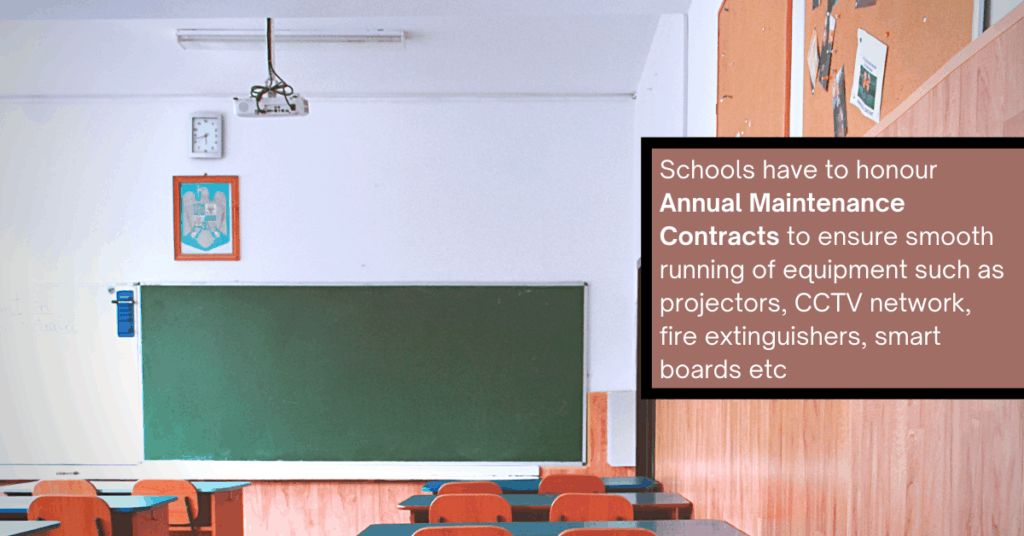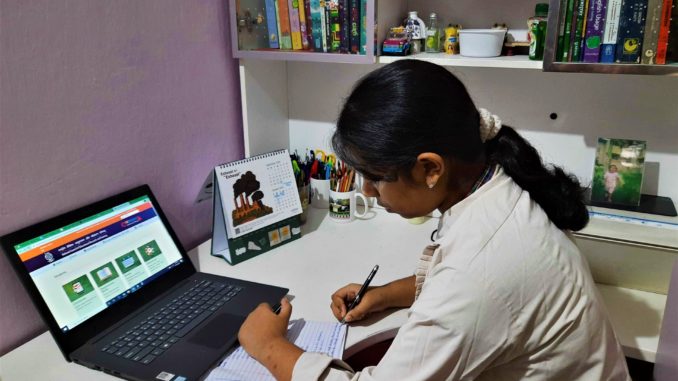The education sector, especially schools, are generally viewed by the public as the goose that lays the golden egg. Similar to other key critical sectors necessary for the society at large, like hospitals or colleges, this misconception is prevalent about schools as well.
Most individuals leading such institutions are so caught up in ensuring the next generation’s education that they do not bother about the noise outside. There is no lobby either, like in the other established industries, to ensure that no harm is done by policies and decisions proposed by the government.
Education is a basic right as per our constitution and huge resources are allocated to service this need in the form of government schools. The government realistically spends more per student in government schools than the fees of private schools. The inefficiencies of the government system is a whole other discussion.
The huge gap in the quality offered at these schools is such that close to 50% of the children in India study in private schools. Parents voluntarily pay fees to avail of quality education rather than enroll for free education offered by the government.
Read more: Access to schooling: Will 2021 further deepen the divide?
Private schools are privately funded and nurtured into centres of excellence in their own right. In the case of unaided private schools, the government gives no support and rather over-regulates the sector on the pretext of safeguarding the larger public. Like in any aspect of life, there will be a few bad apples and their actions cannot be taken to taint the entire sector.
A school is a complex entity that requires a huge amount of passion and capital to ensure its success. The same needs to be met with the fees collected by the school. Particularly in metropolitan areas there is a school that caters to every need and affordability, from the parents’ point of view.
Factoring in the costs
This past year has been a huge revelation for schools. They realise that parents actually believe that school fees should be collected at a huge discount as classes were not held (or held only online).
The parents who are demanding a huge reduction in fees due to their limited understanding of finances. They believe that a school can simply close down and then be ready to open and resume operations at a day’s notice. Unfortunately, in the real world this does not happen.
Read more: Breaking the school-fee deadlock: A panel discussion
Schools generally make huge investments in infrastructure and land to establish themselves. They have to repay the banks or landlords for the same. A majority of their operational costs are salaries, which can be up to even 70% of operation expenses.
Apart from teachers, they have a huge admin team that is required to support the school’s operations. They include housekeeping staff, security, office boys, gardeners and many more, who all have to be trained along with the required background and police verification.
A school cannot be simply locked up for over a year with no maintenance and expect them to be ready for a notification from the government to reopen. With the experience of past notifications, there is hardly any time given to prepare oneself to open the school again.
A school, like any other institution, has a plethora of AMC’s (Annual Maintenance Contracts) that have to be honoured to ensure that equipment is running smoothly.
For example, there are backup diesel generators, transformer yard, UPS systems, photocopiers, computers, printers, CCTV network, air conditioners, PA systems, intercom, water purifiers, fire extinguishers, smart boards, projectors apart from regular renewals like firewalls, anti-virus, domain hosting, internet connections, insurance, licenses, affiliation fees and many more. Do these costs stop just because the school has no students on campus?

The most common argument is that electricity costs would have been saved. Most schools do not have air conditioned classrooms. Savings are very meagre. They would directly go towards the additional expenses towards ensuring the campus follows COVID safety protocols with Covid tests, disinfection, thermal scanners and hand sanitisers. Also for the training and resources required to shift learning online and now prepare ourselves for a new approach.
Most schools have a high minimum bill for electricity, based on the sanctioned energy load. This amount is charged irrespective of the consumption. Also, keep in mind that these schools are charged at commercial rates for everything including electricity, water, gas and even property tax. Clearly, the government has not offered much support in these areas.
While it is easy for parents to ask private schools for a large reduction in fees, why not ask the government to make a reduction in all the resources they charge the public for, such as power, fuel, gas and taxes ?
Case-to-case concessions
Schools have always maintained that a discount will be given to parents who are in need. Many schools have already done that. An arbitrary ruling that forces fees to be reduced for all does not really help those that really need it.
There are educators who have taken their lives in this pandemic as they have not been able to bear the resulting financial burden. How are we going to encourage more individuals to venture into this selfless space if this is going to be the collective attitude towards schools?
There are many instances where parents who have suffered losses have been offered discounts in the range of 50-100% and this has been done on a case to case basis depending on documents submitted to the school. A uniform 30% reduction only jeopardises the school financially. In the long run, this impacts the quality of education for all children.
Read more: “Have MRP on school-fees”
Many schools have already reverted back to the fees of 2019-20 levels and forgone any increment for this academic year. This is apart from the fact that the admissions for schools is almost non-existent for the academic year starting 2020-21.
As everyone is aware, schools make up a lot of the revenue gap with this stream of steady new admissions. Caused by an entire batch Graduating students at the end of 2019-20. Given the pandemic, parents have chosen to sit on the sidelines and wait for clarity rather than enroll their children. This has much deeper financial impact than what is visible to the public.
Women more affected
Given the pandemic and lockdowns, household responsibilities for women have increased. A majority of school teachers are women and they have had a lot of challenges to overcome starting with their own families and household duties. They have had to adapt to the digital mode of instruction and complete the entire school year with online classes.
Do we reward such dedicated individuals with a salary cut? If not an increment or recognition for their efforts, at least the regular salary should be awarded. We are bound to lose many passionate educators as their families would not want them to continue working for the reduced salary earned.

Has the Government given a thought to what it means for a generation of learners not to begin schooling at the right age? These are the challenges the schools have to face and be ready with once things get back to normal. If schools are financially crippled, how are we to address these needs?
Unregulated ed-tech
While schools grapple with all these regulations, what becomes of the billion-dollar ed-tech firms? They publicly make fraudulent claims as part of their marketing techniques and lure parents in. This is followed up with some very questionable tactics to drive revenue to the company. To top it off many of their so-called tutors cannot be officially hired in schools as teachers.
Should the future of education move to a purely tech-based platform where all the obstacles laid out to private schools by the government are non-existent? The experience of the current times will have serious cascading effects into the future.
Also Read:
- E-learning policy: Govt can’t have one solution for all types of schools, says expert
- “Online classes are critical for underprivileged children during COVID”
- Rules on reopening tough to implement, Bengaluru schools say
- These girls want to study, but will be college dropouts
[Disclaimer: This article is a citizen contribution. The views expressed here are those of the individual writer(s) and do not reflect the position of Citizen Matters.]
Thank you Sarvesh for this article that looks at the effects of a fee cut from the perspective of schools. One hopes that parents read this without bias and truly understand the cascading effect of the government proposed fee cut. A parent’s group questioned the protest by teachers and stated that it should be managements that should be protesting. I hope this group sees that eventually it is the teachers, and yes, as you have rightly stated, women, who will have to bear the brunt of this action by the government.
sir,
excellent , genuinely working hard for future generations.
Thank you Sir.
Thank you Ma’am,
The entire education fraternity deserves better. Most in this industry do not keep monetary earnings as their motivation. Rather the impact that they can have on the future as well as the respect they earn in the society. This past year has seriously impacted this and hence a lot of us are begining to speak out.
Sir very well explained,im a parent of 6th grade and my heart goes out to the facilitators and the entire staff.The effort that the teachers are puting for the online classes is really commendable,they deserve to be paid their entire salaries, as you rightly said parents who are going through tough times can be helped by the school on a one to one basis.Others should stand by the management and staff.